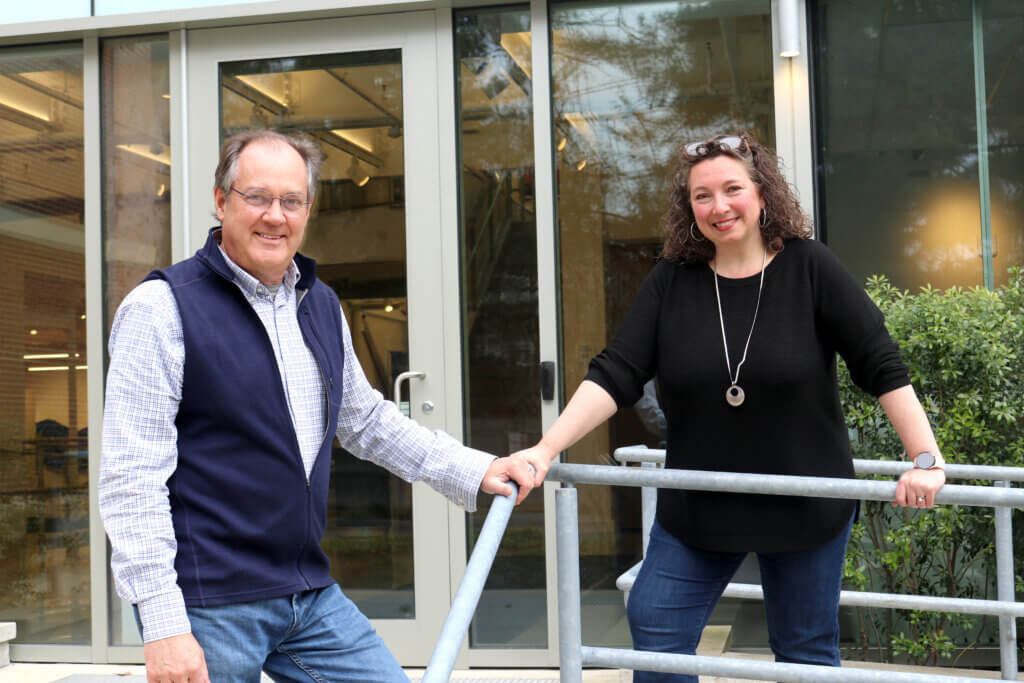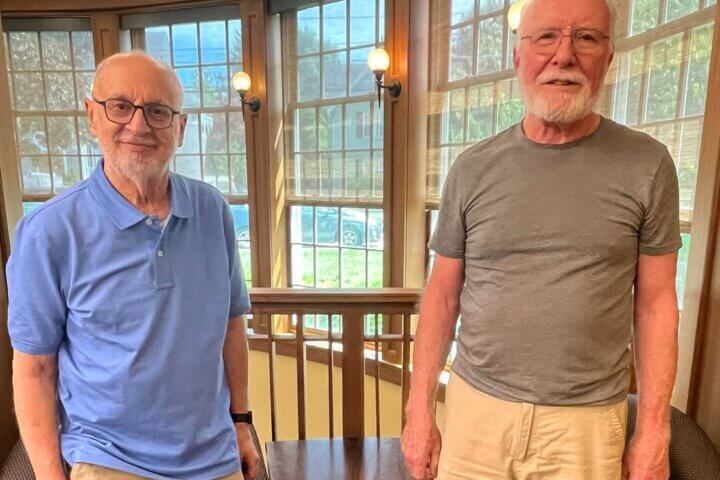By Laurie O’Neill — Correspondent
“Any form of art is a form of power; it has impact, it can affect change — if can not only move us, it makes us move,” says the actor Ossie Davis in Jeanne Noble’s “Beautiful, Also, Are the Souls of My Black Sisters.”
Eileen Williston, The Umbrella Arts Center’s new executive director as of July 1, would likely agree.
Williston, who grew up in Westchester County, New York, is an actor and singer. She’s performed with groups including the SpeakEasy Stage Company, the Lyric Stage Company of Boston, Wheelock Family Theatre, and the Gloucester Stage Company, and she understudied roles at the Huntington Theatre.
Her passion for the arts goes back to her elementary school years, when she acted in plays such as “Tom Sawyer. ” It continued through high school and then at Marywood College in Pennsylvania, where Williston majored in communications arts and acquired experience in every aspect of the field.
She worked as a DJ at her college radio station and wrote copy for its TV station, took voice lessons and performed in shows, did stints as a lighting technician and a set builder, and even “dyed costumes in my apartment bathtub.”
At Marywood, Williston played Annie Sullivan in “The Miracle Worker,” an “unforgettable” experience for which she learned American Sign Language.
Business — and balance
For the next dozen years, Williston worked as a performing artist, but she was increasingly attracted to the “business end” of the arts.
In 2004 she began working for Fidelity Investments in various capacities, while still auditioning and performing when she could, and eventually became an events coordinator.
Those years “fed the artistic and creative side of me,” Williston says, but she also enjoyed the required travel and “providing opportunities for clients to meet and gather and talk and learn.”
Though she had once dreamed of becoming a Broadway star, Williston found herself pausing to reflect on her life after her father lost his battle with cancer. She decided that “maybe performing isn’t what I want.” She had gotten married and longed for more stability, which is not always possible for a performing artist.
“I wanted a better work/life balance,” says Williston, who lives with her husband, James, and their daughter, Samanta, 13, in Acton.
Williston joined Boston Lyric Opera in 2007 as its events coordinator and worked her way up to managing director, overseeing development, marketing, community engagement, and education with a team of 15. “I was loving it!” she declares.
“Oh my gosh,” she remembers thinking when she began working for BLO. “I’m in the arts. I’m making art happen. But I can also do life.”
Her next move was prompted by her husband’s hiring as the Performing Arts department’s technical director at Concord Academy. Williston accepted a position as The Umbrella’s director of development.
Her last day at BLO was to have been March 20, 2020. Timing ring a bell?
An imminent production had to be shut down, and she helped the company navigate the global crisis.

Pandemic operations
Williston’s first year and a half of Umbrella work was yet another challenge. It was conducted over Zoom, which is how she met her new colleagues. But it didn’t take her long to “fall in love,” she says, with the arts center, where she worked with Jerry Wedge, who stepped down this month after a 12-year tenure.
Wedge, a Concord resident, led the Umbrella through the renovations and expansion that elevated it to a state-of-the-art facility. Among other accomplishments, he oversaw the development of Artist Residences.
When Williston made it known that she hoped to bring other parts of her experience to the table, her role grew into that of deputy director in 2022. She helped restructure the organization’s administrative and operations teams and led fundraising through the Covid pandemic, achieving a 64 percent increase in contributed revenue.
The gold standard
Eager to “lean into everything” in her new position, Williston will embark on a strategic planning process next year.
“We have been seeing how the building works,” she says, “Now we can talk about how it can serve the needs of everyone as efficiently and effectively as possible.”
The Umbrella is “incredibly unique,” she adds, noting that it is “really difficult to find another organization that does what we do: offer studios and galleries, educational programs, and performing arts under one, well, umbrella.”
Williston is “looking forward to us being open to the process of discovery and learning along the way,” she says. “I think the Umbrella can be the gold standard for an interdisciplinary arts organization. We have everything we need to do that.”






